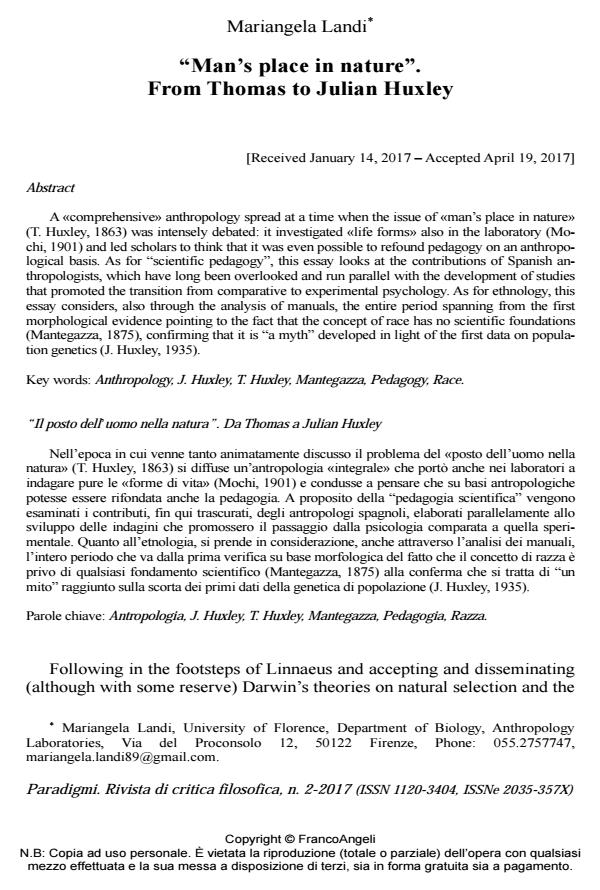"Man’s place in nature". From Thomas to Julian Huxley
Journal title PARADIGMI
Author/s Mariangela Landi
Publishing Year 2017 Issue 2017/2
Language English Pages 17 P. 23-39 File size 211 KB
DOI 10.3280/PARA2017-002003
DOI is like a bar code for intellectual property: to have more infomation
click here
Below, you can see the article first page
If you want to buy this article in PDF format, you can do it, following the instructions to buy download credits

FrancoAngeli is member of Publishers International Linking Association, Inc (PILA), a not-for-profit association which run the CrossRef service enabling links to and from online scholarly content.
A «comprehensive» anthropology spread at a time when the issue of «man’s place in nature» (T. Huxley, 1863) was intensely debated: it investigated «life forms» also in the laboratory (Mochi, 1901) and led scholars to think that it was even possible to refound pedagogy on an anthropological basis. As for "scientific pedagogy", this essay looks at the contributions of Spanish anthropologists, which have long been overlooked and run parallel with the development of studies that promoted the transition from comparative to experimental psychology. As for ethnology, this essay considers, also through the analysis of manuals, the entire period spanning from the first morphological evidence pointing to the fact that the concept of race has no scientific foundations (Mantegazza, 1875), confirming that it is "a myth" developed in light of the first data on population genetics (J. Huxley, 1935).
Keywords: Anthropology, J. Huxley, T. Huxley, Mantegazza, Pedagogy, Race.
Mariangela Landi, "Man’s place in nature". From Thomas to Julian Huxley in "PARADIGMI" 2/2017, pp 23-39, DOI: 10.3280/PARA2017-002003